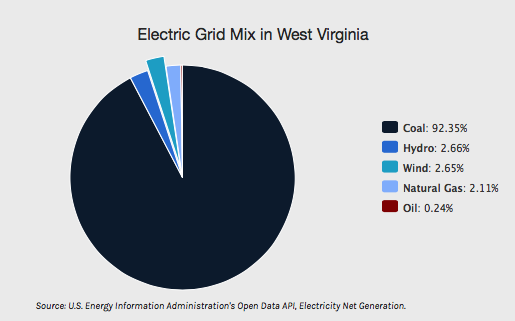West Virginia homeowners, businesses, municipalities, schools, and non-profits are eager to generate their own electricity and save money with renewable energy. Unfortunately, too few are able to do so because of the upfront cost. Power Purchase Agreements (PPAs) are one solution to this problem. PPAs allow for third-party ownership of renewable and alternative energy generation projects such as solar, wind, hydropower, geothermal, biomass, and combined heat and power (CHP) facilities. PPAs are not yet legal in West Virginia, but our state’s community of renewable energy supporters is working hard to change this.
Since launching a campaign to legalize PPAs in West Virginia less than six months ago, 39 organizations, municipalities, and businesses – from local to multinational – have formally joined the West Virginians for Energy Freedom coalition. Many more individual supporters and advocates stood up for energy freedom in the Mountain State by emailing, calling, or meeting in person with lawmakers to express their support for PPAs.
Thanks to these advocacy efforts by West Virginians for Energy Freedom and its affiliates, bipartisan groups of West Virginia lawmakers in both chambers introduced bills to legalize PPAs for on-site renewable and alternate energy generation facilities during the 2019 legislative session. While neither of these measures made it out of committee in time to move forward this year, it is rare for a bill to become law the first year it is introduced. So, let’s keep our chins up and start planning for success in 2020!
The progress we have made so far is thanks to every single one of you who took action on this issue. Special thanks are due to our dedicated team of mostly volunteer campaign leaders who continue to fight tirelessly for West Virginians’ energy rights. We are excited to continue this campaign, grow our coalition, engage new stakeholders, and bring the fight for energy freedom to lawmakers’ local districts during the legislative interim!
Be sure to sign up below for our mailing list to receive future campaign updates and action alerts. Thank you for supporting energy freedom in West Virginia!







